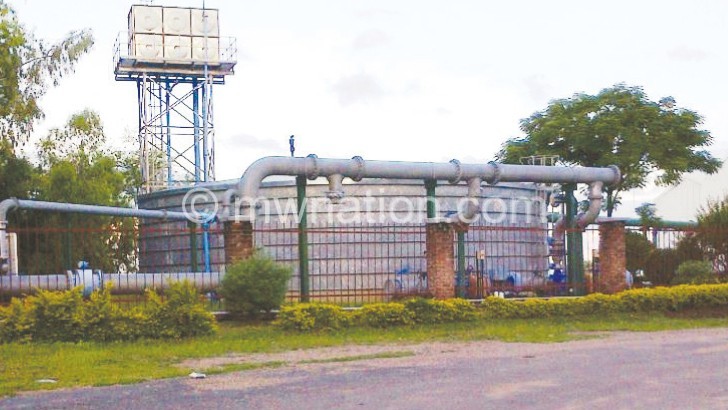Karonga’s quest for potable water
In just three years, Karonga District has lost about 10 people to waterborne diseases, particularly cholera and registered over 500 cases.
There are several factors attached to this vulnerability, but at the core is lack of potable water.
Intermittent power supply, small diameter pipes, old leaky pipes and tanks are some of the challenges that have crippled Northern Region Water Board (NRWB) to equally distribute water to every household.
While those living away from Karonga Boma area are able to fill their buckets with water fetched from boreholes, life is hard for communities from Malema II and other locations around the Boma, who rely on tap water supplied by NRWB, when the taps run dry.

As a result, some people end up drinking from Lake Malawi, thereby subjecting themselves to waterborne diseases such as cholera, especially during the rainy season.
Last rainy season alone, the district recorded 347 cholera cases with seven deaths out of 893 cases and 30 deaths recorded countrywide.
Interventions such as provision of boreholes have been a hope in bridging the gap in access to potable water in Malawi, but it has proved to be insufficient to meet the growing demand, particularly among rural and peri-urban communities. Water for People says access to improved water in the rural areas is still below 90 percent.
This calls for new ideas that can promise sustainable water supply. In the North, NRWB believes piped water is the solution. The water supplier has embarked on an expansion exercise of its water supply system to meet the growing demand at Karonga Boma and the surrounding communities.
Last July, Parliament approved the board’s proposal to implement a water project with $26.7 million (about K19.4 billion) loan from Opec Fund for International Development (Ofid) and Arab Bank for Economic Development (Badea).
Ofid will pump in $15 million (about K10.8 billion), Badea $10 million (about K7.3 billion) while government, through NRWB, will contribute $ 1.7 million (about K1.2 billion).
NRWB director of finance in the district Francis Munthali says the project will run from August 2018 to September 2021.
He says the project will include replacing small diameter pipes, upgrading of transmitting water pipes and constructing new water treatment plant of about 30 000 cubic metres.
“We have been supplying water mainly in town and our equipment was installed sometime back. This time we will construct 24 kilometres (km) transmission mains, which are 9km and 15km to Bwiba and to Balyenge, respectively.
“We want to upgrade that because the population is growing every day, causing the water demand to greatly increase and rendering the capacity of water supply infrastructure inadequate,” he says.
Munthali adds that the project will run beyond Karonga Boma to as far as Mlare, Pusi, Mpata, Kambwe and Katili.
Karonga district council chairperson Councillor Harry Mwanyembe says the project has come at the right time when the district needs several interventions on water and sanitation to curb waterborne diseases.
“Many people are suffering due to lack of sanitation. You know without potable water, sanitation cannot be there. So, I thank NRWB for this project,” he says.
Currently, NRWB has only 6 000 customers out of 63 000 people living at Karonga Boma.
Karonga Central Constituency legislature Frank Mwenifumbo hails government for the project, saying it will save people’s lives through provision of potable water for domestic use.
“The project is of national importance. It will improve the people’s living standards as some will now have taps in their homes.
“In Karonga some people drink untreated water from the lake and I am certain that this development will improve the situation,” he says, adding the project will also create jobs for the youths.
However, there are calls for NRWB to extend the project to Ngala in Traditional Authority Mwilang’ombe, a community that is hit by cholera every year.
Christobel Shaba, a resident at Karonga Township, says the project will reduce distance women walk to fetch water from rivers, streams and lake.
Nonetheless, NRWB’s spokesperson Edward Nyirenda says the board is concerned with vandalism of water infrastructure because it retards development in water supply services. Most affected equipment are water pipes and meters.
The board’s zone manager Stanford Msongole says he receives reports of vandalised pipes every day and they are losing millions of kwacha in replacements.
“People deliberately vandalise the pipes to accesses free water to mould bricks and for their cattle to drink. This costs us heavily,” he says.
He acknowledges that due to economic hardships, some people tamper with the meters to get free water because they cannot afford it.
“In 2017, we received about 15 cases of vandalism and between January to March this year, we have recorded more than 27 cases,” he says.





